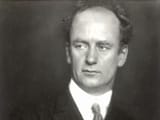Search Results
7/14/2025, 1:41:34 AM
>>127033584
>Nietzsche has great art at hand when it comes to using it as a foil, as a contrast, because in and of itself his relationship to the great composers was rather loose. Certainly he was musical, as they say. He even composed. But he made little use of the "Great Ones" of music for himself. In his garrulous manner he by no means left us in the dark about this. He speaks of Bach and Beethoven without any sympathy or understanding. For him, Beethoven is a representative of the 18th century, and the best thing about him is his ability to "find the notes of late bliss in faded love". (I wonder which works by Beethoven he might have had in mind with this strange definition.) No, Nietzsche certainly didn't care much about the organic and architectonic in music. What affected him about the music was the color, the perfume, the nuance, the sensuality, everything that was morbid, fleeting, seductive. Significantly, he once said that for Chopin he would "like to give all the rest of the music". Of course for that, which was unique about Chopin - the perfume - not what connected him to the other great musicians. As a musician, Nietzsche remained in his later days what he was from the start: "Wagnerian". How could he not? With regard to the basic attitude to an art - something that belongs entirely to the subconscious of our nature - one cannot change in the course of life despite all other developments.
>Nietzsche has great art at hand when it comes to using it as a foil, as a contrast, because in and of itself his relationship to the great composers was rather loose. Certainly he was musical, as they say. He even composed. But he made little use of the "Great Ones" of music for himself. In his garrulous manner he by no means left us in the dark about this. He speaks of Bach and Beethoven without any sympathy or understanding. For him, Beethoven is a representative of the 18th century, and the best thing about him is his ability to "find the notes of late bliss in faded love". (I wonder which works by Beethoven he might have had in mind with this strange definition.) No, Nietzsche certainly didn't care much about the organic and architectonic in music. What affected him about the music was the color, the perfume, the nuance, the sensuality, everything that was morbid, fleeting, seductive. Significantly, he once said that for Chopin he would "like to give all the rest of the music". Of course for that, which was unique about Chopin - the perfume - not what connected him to the other great musicians. As a musician, Nietzsche remained in his later days what he was from the start: "Wagnerian". How could he not? With regard to the basic attitude to an art - something that belongs entirely to the subconscious of our nature - one cannot change in the course of life despite all other developments.
Page 1
